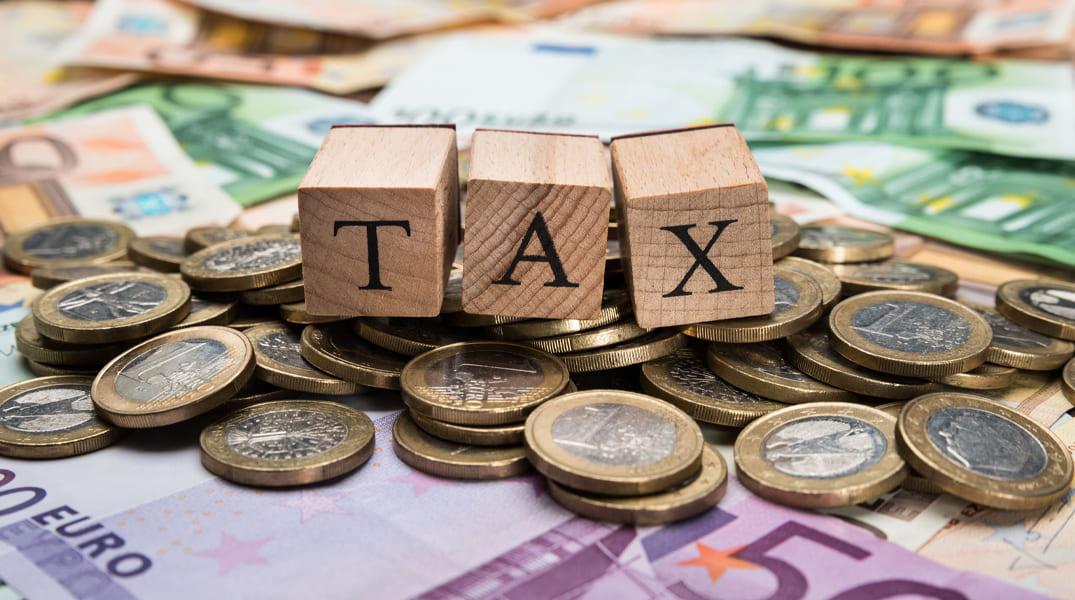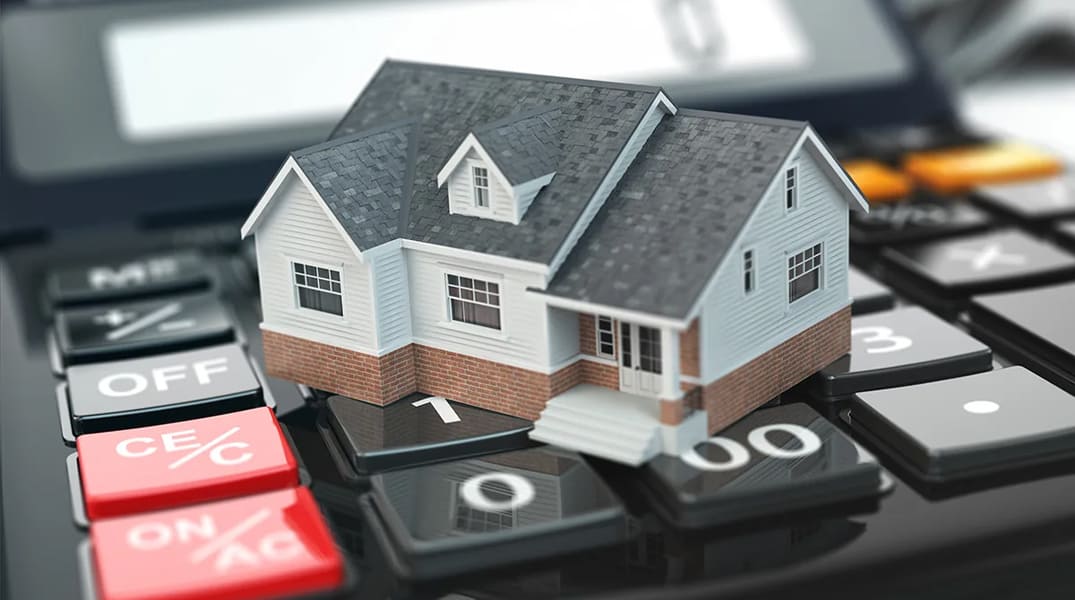Property taxes in Spain are one of the main sources of income for the Spanish government. They play an important role in financing public programs and providing public services.
Compared to other European countries, Spain has a relatively lenient tax system – this applies to both the costs of buying and selling real estate, and the taxes for property owners, as well as landlords. Today we will touch on this complex topic, which must be carefully studied by everyone who wants to buy a property in this country and move here for permanent residence.

Contents
- What are the main taxes in Spain?
- What should a non-resident know when buying property in Spain?
- Features of paying property tax
- What taxes do you need to pay when owning Spanish real estate?
- Tax when renting out real estate
What are the main taxes in Spain?
Let’s note the main types of taxes that are somehow related to real estate:
- Property tax (Impuesto sobre Bienes Inmuebles, IBI). This is one of the most common property taxes in Spain. It is levied on property owners based on its cadastral value. The size of this tax is determined by the municipality where the property is located.
- Environmental tax (Impuesto sobre Actividades Económicas). This tax applies to commercial real estate and businesses. Its size depends on the size of the enterprise and its location.
- Income tax from real estate (Impuesto sobre la Renta de las Personas Físicas, IRPF). Individuals who receive income from renting their property in Spain are obliged to pay the corresponding tax. Its size depends on the amount of income and the tax rate.
- Profit tax from selling real estate (Impuesto sobre las Ganancias Patrimoniales). If you sell real estate in Spain and receive income from it, you are obliged to pay tax on this profit. The size depends on the amount of profit and the term of ownership of the property.
- Inheritance and gift tax (Impuesto sobre Sucesiones y Donaciones). When transferring property by inheritance or donation, there may be an obligation to pay inheritance tax. The size depends on the value of the property and the degree of kinship between the donor and the recipient.

A feature of Spanish taxes is their division by regions. Each region has the right to set its own tax rates and rules for its residents. This can lead to significant differences in the size of tax payments between different areas of Spain.
The calculation of property taxes in Spain is based on various factors, including the cadastral value of the property, the area, the tax rates and other factors.
For foreign investors who own property in Spain, it is important to be aware of all tax obligations. Non-payment of taxes can lead to fines and problems with the Spanish tax authorities. It is also important to know about the benefits that you are entitled to. For example, the first 108 000 euros of the value of housing are not taxed. Keep in mind that the percentage tax rate constantly progresses, while it directly depends on the size of the acquired housing in the country. The larger the property – the higher the tax rate.
What should a non-resident know when buying property in Spain?
Buying property in Spain is a long-term and potentially profitable investment decision. But, in order to fully appreciate the potential of the acquired object and avoid possible problems, you need to be aware of your rights and obligations as a non-resident.
The rights of non-residents:
- Ownership of property. Owning and using the purchased property is the main right of non-residents. Even if you do not live permanently in Spain, you have the right to use your property, rent it out or sell it.
- Free movement. As a non-resident, you have the right to freely enter and leave Spain. This means that you can come and live in your apartment or house at any time, including during the tourist season.
- Participation in the economy. Buying real estate in Spain gives you the opportunity to contribute to the economy of the country. You can rent out your property for tourists or for long-term living, which will allow you to get additional income.

You should not forget about the obligations:
- Paying taxes. As a homeowner in Spain, you are obliged to pay property tax. The tax rate depends on the value of your property and the region where it is located.
- Compliance with local rules and norms. You are also obliged to comply with all local laws and norms related to the operation of real estate. For example, you must obey the rules of the homeowners association, if any, as well as comply with the laws on renting.
- Preservation and maintenance of property. You are obliged to keep your property in good condition and comply with the requirements that are imposed on the rules of ensuring the preservation of property. This may include regular technical maintenance, as well as paying utility bills.
- Compliance with immigration rules. If you decide to live in Spain for more than 90 days a year, you must comply with the rules regarding the stay and registration of foreign citizens. You can contact the local immigration service to get the relevant information and documents.
- Accounting and reporting. You also need to keep track of all income received from renting your property, and properly inform the tax authorities.
Features of paying property tax
When buying property in Spain, taxes play an important role and can significantly affect the final cost of the deal. The size of the property purchase tax depends on the region where the object is located, as well as on various factors, such as the value of the property, the size of the transaction and the status of the buyer.

Here are the most common taxes when buying housing in different regions of Spain:
- Property transfer tax (Impuesto de Transmisiones Patrimoniales, ITP) – this is the most common tax when buying property in Spain. The rate is usually from 6% to 10%, but may vary in different regions of the country. For example, in the Canary Islands, the ITP rate is 6.5%, while in Catalonia – 10%.
- Tax on legal fixation of the act or stamp duty (Impuesto sobre Actos Jurídicos Documentados, AJD) – it is usually levied when concluding a contract of sale and purchase and amounts to about 1-2% of the value of the property. However, in some regions of Spain, the AJD tax is absent or set at a significantly lower level.
- Value added tax (Impuesto sobre el Valor Añadido, IVA) – it applies to new buildings, i.e. to real estate that was built within the last 2 years. The tax rate is usually 10% of the value of the property. If we are talking about a commercial object (a land plot, not put into operation, parking spaces that are separate from housing), then the rate is higher – 21%.
- Excise taxes on the purchase of real estate – in some regions of Spain, an excise tax may also be levied on the purchase of real estate. For example, in Catalonia, excise duty is about 1.5-2% of the value of real estate.
They can change over time and may require consultation with a tax lawyer or real estate expert to get detailed information about taxes in a specific region. Keep in mind that stamp duty is paid only when buying housing from a developer (not on the secondary market).
In addition, for certain categories of buyers, tax benefits or reduced tax rates may be established. For example, young families or disabled people may be granted subsidies.
It is also important to consider that these taxes are only general information and may be changed or supplemented depending on the legislation of a specific region of Spain.
What taxes do you need to pay when owning Spanish real estate?
For all owners of real estate in Spain, 3 taxes are provided:
- Property tax (Impuesto sobre Bienes Inmuebles). This tax is levied by city and municipal authorities and depends on the location and value of the property. The calculation amount depends on the cadastral value of real estate and rate, which differs depending on region where real estate is located.
- Income tax from real estate (Impuesto sobre la Renta de No Residentes / Impuesto sobre la Renta de las Personas Físicas). Non-residents who own property in Spain are obliged to pay income tax from real estate. The tax rate is 19% of the income received from renting or selling real estate.
- Wealth tax (Impuesto sobre el Patrimonio / Impuesto sobre la Renta de No Residentes). Non-residents who own property in Spain worth from 700 000 euros are obliged to pay property tax based on the value of real estate and other assets belonging to them in the country. The tax rate may vary depending on the total value of assets and can reach 2.5%.
Tax when renting out real estate
The tax when renting out real estate in Spain is 24% for non-residents of the European Union (for residents – 19%). But the amount can be reduced if you provide receipts that you, for example, spent your money on improving housing.
It is important to consider that the tax service very carefully monitors that all non-residents fulfill their tax obligations. If there is a delay, there is a risk of refusal to extend the visa or residence permit. In order not to bother yourself with unnecessary worries about studying Spanish taxation, contact the company «M2 Real Estate», where you will be provided with an expanded consultation.



